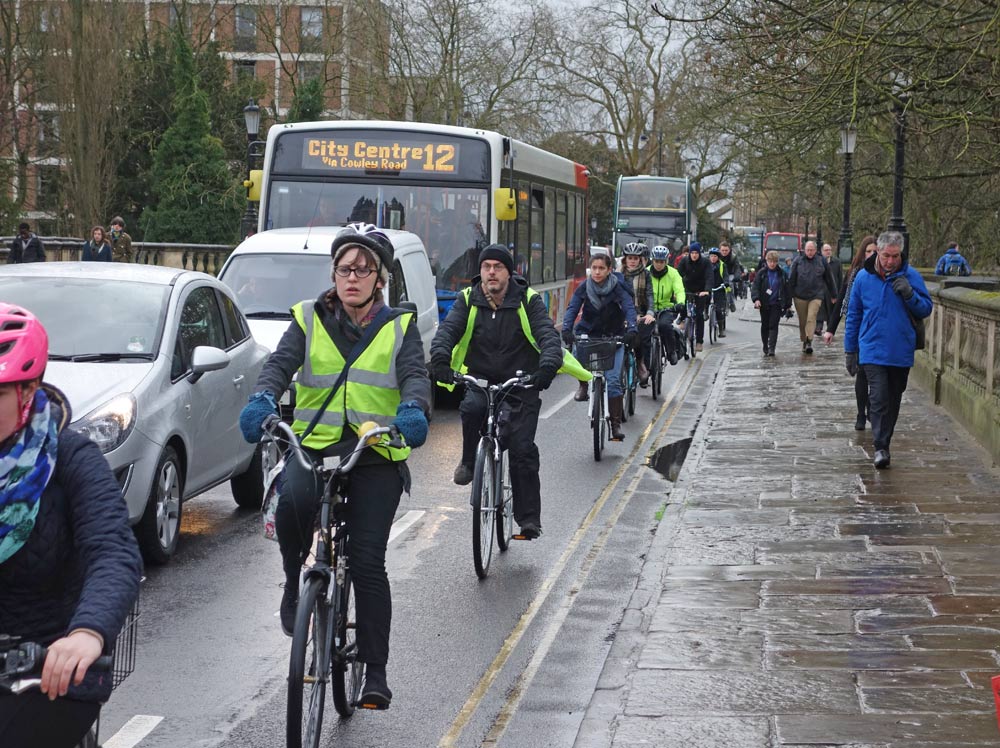
Congestion in Oxford encourages people to take an alternative. Cycling into the centre is significantly quicker at rush hour. Will the forecast increase in congestion lead to a rise in cycling rates in the UK?
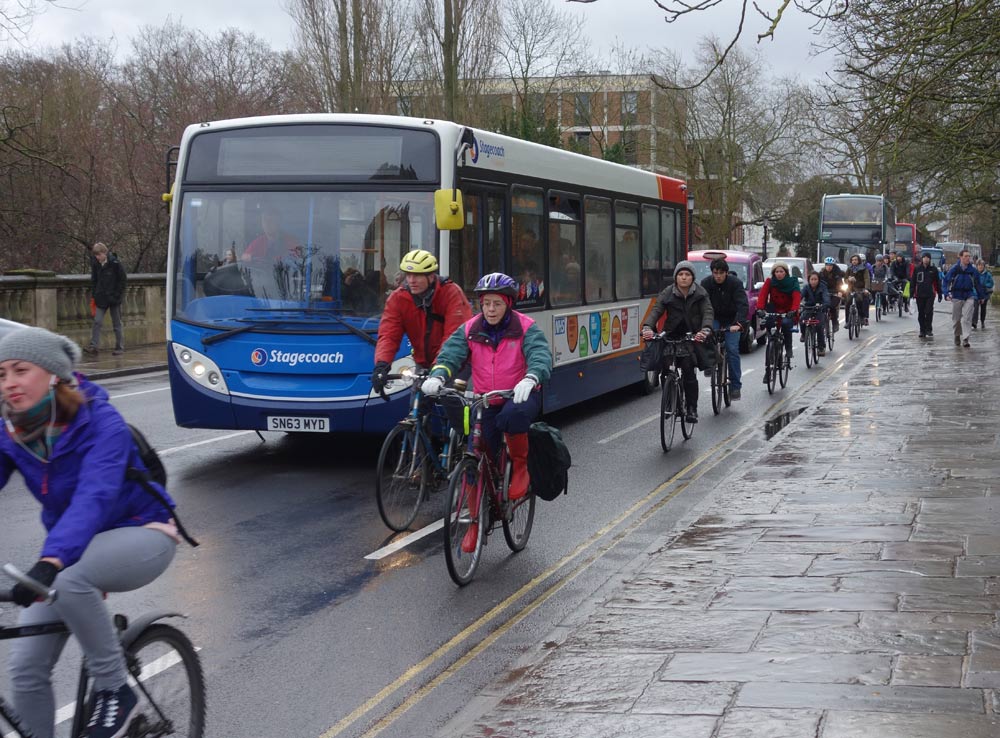
No one likes sitting in a traffic jam, cycle lanes help avoid the worst of the congestion.
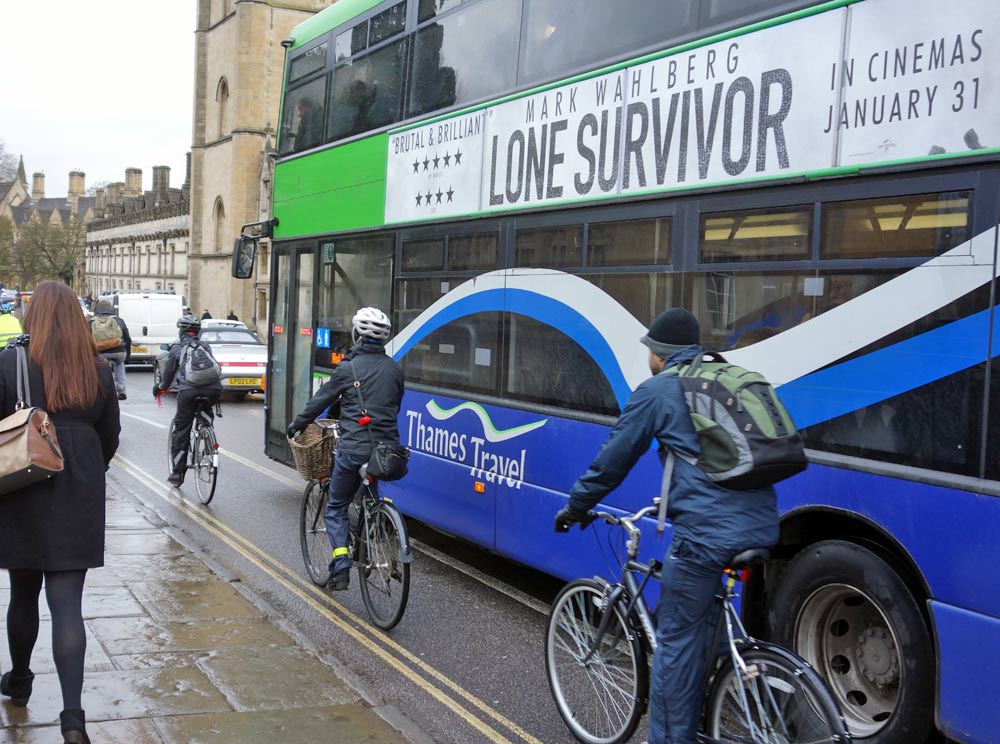
Traffic congestion costs include:
- time lost
- increased vehicle operating costs (brakes, fuel costs)
- Stress of sitting in traffic jams
- There are both internal costs (to driver) plus external costs to other road users and society.
The CBI estimate that traffic congestion costs the UK economy £20 billion a year. (link) Other estimates of the costs of congestion widely significantly, but you don’t need to be an economist to realise traffic jams going nowhere are an inefficient use of resources.
The big concern is that congestion is expected to increase over the next 20 years, due to rising population and increased use of cars.
Road use and time lost due to congestion
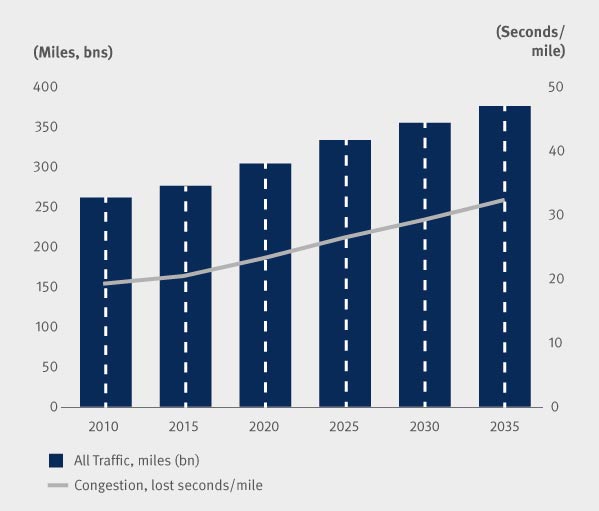
In 2010, an estimated 19 seconds per mile were lost due to congestion.
By 2035, this is estimated to rise to 32 seconds per mile. This is a 68% increase in congestion from today’s levels.
Solutions to congestion
1. Build more roads. This has been the primary objective of government transport policy from the 1960s to 2000s. The number of roads has increased. But, the limitations of this approach include:
- New roads tend to encourage new traffic and they soon fill up
- We are running out of space for new roads, leading to traffic bottlenecks
- Loss of green space, which is at a premium in the UK
2. Congestion charging
The London congestion charge has played a role in limiting the growth of congestion in Central London. A congestion charge makes drivers pay the external costs of driving in congested areas. It also raises revenue for funding alternative transport schemes. Despite the economic benefits and relative success, it remains highly politically unpopular. A referendum in Manchester saw only around 17% support the idea. People don’t like sitting in a traffic jam, but they dislike congestion charges even more. The current government have frozen petrol duties – a very popular political move, but as oil prices fall, expect congestion to increase.
Nevertheless, with the predicted rise in traffic and congestion, congestion charging will probably remain on the table.
3. Free market forces
If congestion continues to worse, it makes alternatives increasingly attractive. If driving into Central London takes an increasingly long time, the relative benefits of cycling / walking / public transport will increase. A significant cause of the growth of cycling in London is a response to the time lost due to congestion. Despite the difficulties of cycling in a congested city, it still offers an increasingly attractive alternative to driving. As congestion worsens in other cities, more people will be forced to look at alternatives to driving.
4. Rethinking city planning to switch transport modes.
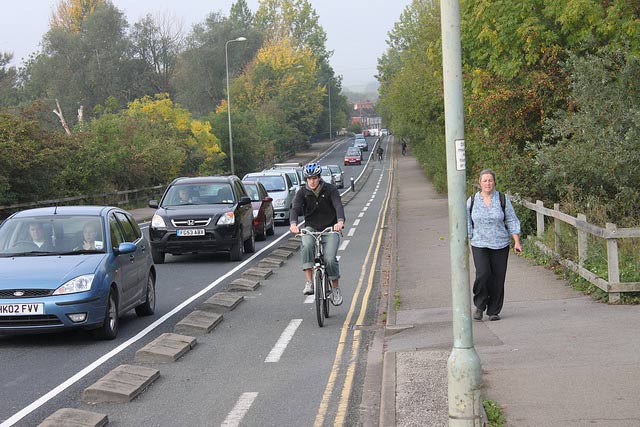
Greater restrictions on motoring, combined with attractive alternatives, such as creating integrated cycling infrastructure cycle campaigners have been calling for.
5. Greater labour market / work flexibility.
The CBI emphasise the role of greater work flexibility so workers can avoid peak times and come into work before or after the rush hour. Also, companies may offer more work at home opportunities, to save the cost of the commute.
Conclusion
Congestion is a real problem. There is a high economic cost, but also the stress of congestion is a significant factor reducing quality of life. But, ironically the worse congestion will get, the more attractive other alternatives start to look. If you were designing cities from scratch would you design it so people drive a car at an average speed of 7 mph and spend hours in traffic jams? More than anything it is a failure of imagination.
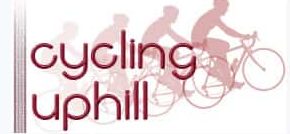
I know Oxford loves the bike but that cycle lane causes all sorts of new issues! Slower moving cyclists going up the inside of buses? Surely that’s asking for trouble when the bus turns left ignoring the cycle lane and mows down a rider?
The bit in the 4th point looks amazing though, looks absolutely perfect for zooming through!